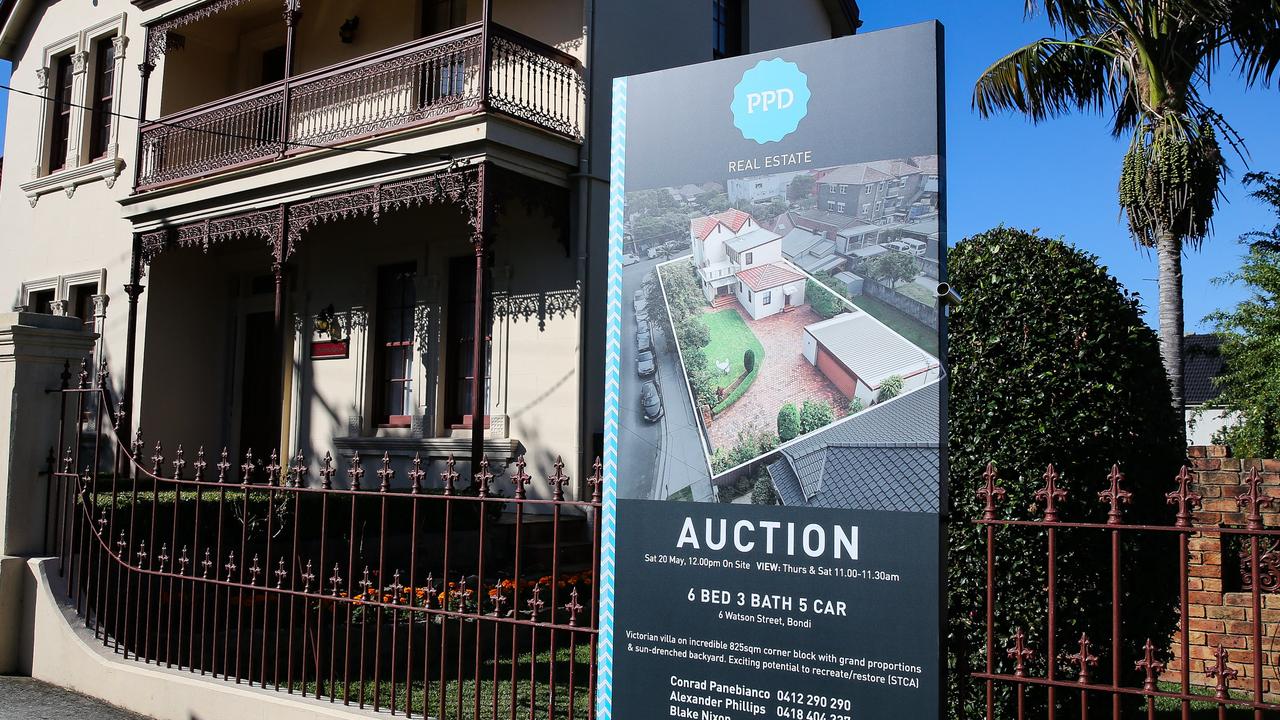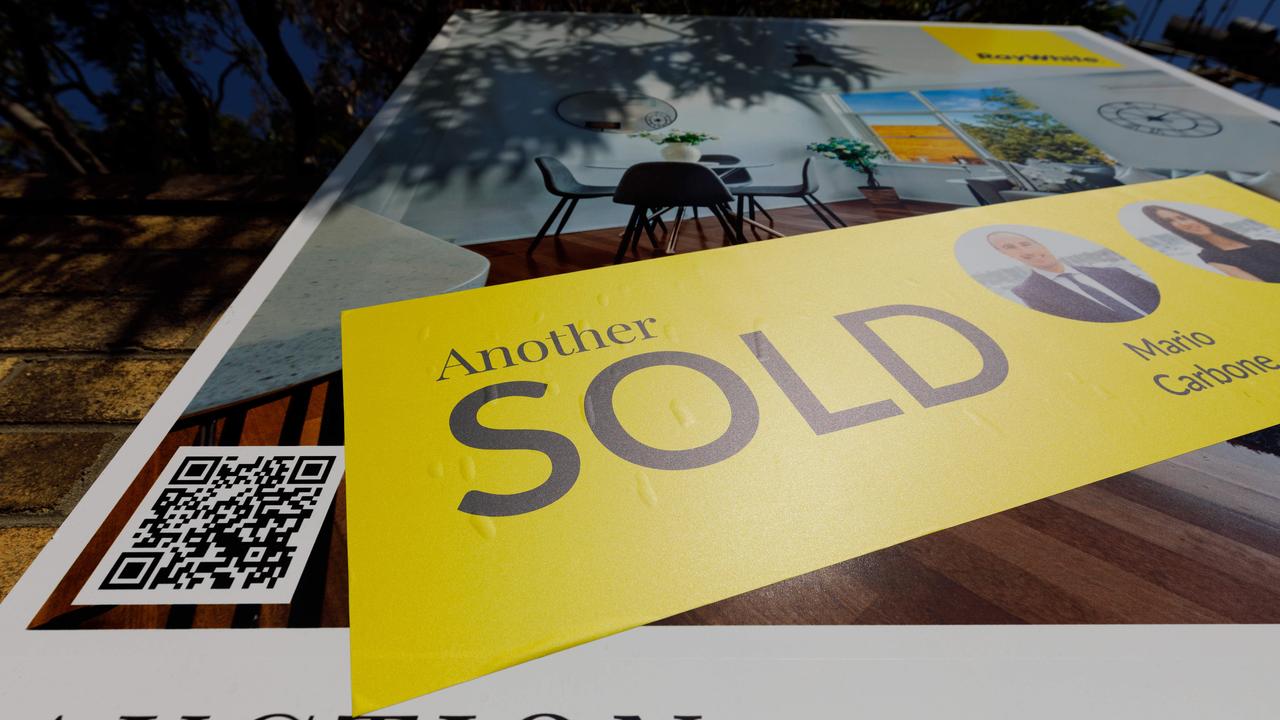Wage war: What Albo’s pay plan means for you
The opposition leader this week kicked off a major stink by suggesting the wages of Australians should be increased to match the surging cost of living. What does this mean for you?
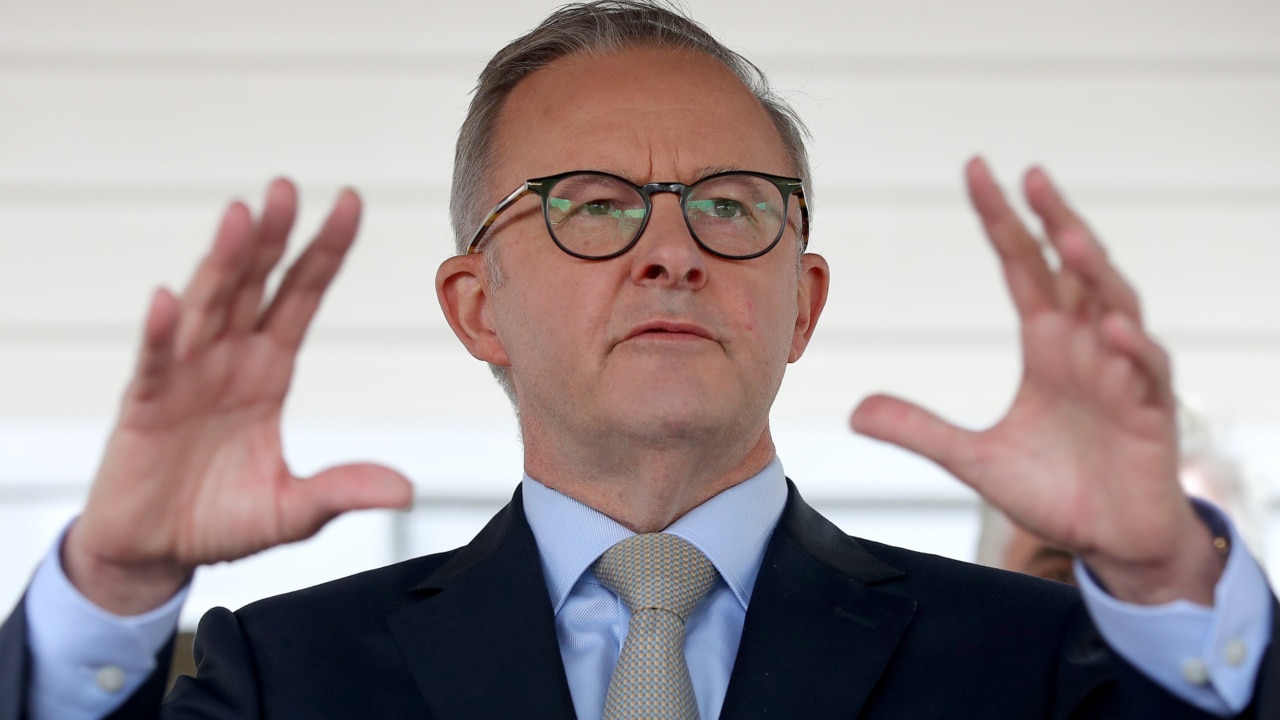
Federal Election
Don't miss out on the headlines from Federal Election. Followed categories will be added to My News.
Much of the past three weeks have been a battleground of economic management, or more specifically, who of Scott Morrison or Anthony Albanese will better protect your hip pocket.
The coalition has zeroed in on Albanese’s experience, mocking him when he is unable to recall key statistics, and gleefully seeking to cast doubt on his economic capability.
Labor, meanwhile, says the government has been asleep at the wheel as consumer prices surge, and is to blame for interest rates entering a significant hiking cycle far sooner than predicted.
But it wouldn’t be a true cost-of living election without a barney over wages.
And folks, it’s time to grab the popcorn.
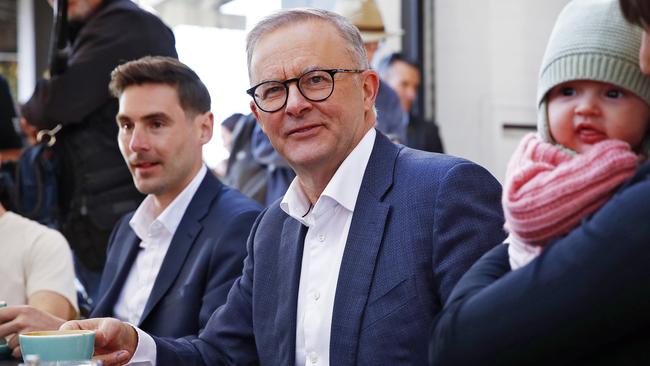
With less than two weeks until the May 21 poll, the opposition leader this week kicked off a major stink by suggesting the wages of Australians should be increased to match the surging cost of living.
On the surface, it’s a fairly inoffensive observation, and one that certainly has the support of unions.
But the howls of indignation from business groups, economists and the government itself have echoed across the news landscape with just as much fervour.
So why are our leaders making such a fuss over wages growth?
Is it reasonable that pay packets would be brought in line with inflation, or are the consequences even more dire than the stagnation workers have been experiencing?
What is happening with wages growth in Australia?
An argument often made by Labor is that 10 years of coalition rule has coincided with an equally long period of poor wages growth.
Wages have, in fact, increased steadily over the past decade.
But so has inflation, meaning a person’s buying power, or “real” wage, has been relatively muted.
“We have a government that have low wage growth as a key feature of their economic architecture; they’ve said that,” Albanese told the ABC on Tuesday night.

The government has been insistent the best way to support wages growth is low unemployment and a strong business community.
But despite unemployment falling to a multi-decade low of 4 per cent, public pay sector caps and workplace pay deals struck before the recent inflation spike means many workers are only getting a nominal pay rise of 2.5 per cent.
That’s a pay cut in real terms.
With soaring inflationary pressures ratcheting up the price of household goods such as groceries and fuel at a rate that far exceeds wages growth, real wages are effectively back where they were four or so years ago and are only tipped to slide further.
The Reserve Bank is expecting inflation to be almost twice as high as wages growth by the end of 2022, meaning your pay packet will effectively be going backwards for 18 months after the Federal Election.
Forecasts released last week show wages growth is not expected to overtake inflation until the end of 2023, when consumer prices are expected to rise 3.1 per cent and wages to grow at 3.5 per cent.
It’s not pretty reading.
So what is Albanese proposing?
Albanese certainly kicked the hornet’s nest on Tuesday.
He offered support for a wage price growth of 5.1 per cent, in line with the decades-high headline inflation rate, saying workers’ pay “should not be allowed to go backwards”.
“The idea that people who are doing it really tough at the moment should have a further cut in their cost of living is, in my view, simply untenable,” he told the ABC.
“I believe very firmly that people who are on the minimum wage, which is just $20.33, shouldn’t fall further behind.”
Albanese’s comments followed an ACTU submission to the Fair Work Commission for a 5.5 per cent increase in the minimum wage to $21.45 an hour, the equivalent of $42,385 a year.
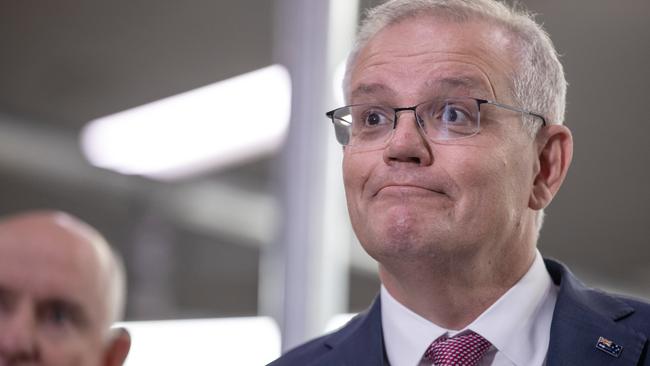
That’s something the Labor leader does not agree with, given it outstrips inflation, but he says a Labor government would make its own submission to Fair Work advocating for a rise.
No specific wages target has been named.
Frontbencher Jason Clare popped up to hose down the fiery response to Albanese’s stance, asking “what’s controversial about wages keeping up with the cost of living?”
“The alternative to that is that Australians on low incomes are poorer, that they go backwards, that they’ve got less money in their pocket this year than they had last year.
Mr Clare also said Labor would make significant productivity investments to ensure wages growth would not contribute to inflation.
“What we want to do is make sure that the economy's capacity to grow is not held back by inflation out of control,” Clare said.
“You’ve got to tackle action here to help to make sure that people’s wages keep up with the cost of living. There’s a whole bunch of ways that we can do that.”
How is this different to what Morrison is saying?
As you might imagine, Mr Morrison leapt on Albanese’s bold wages stance.
The Prime Minister labelled Albanese a “complete loose unit” on economic management and said boosting wages by 5.1 per cent would only send inflation surging further.
Mr Morrison has also acknowledged that Australian workers won’t see a real wage increase for another 18 months.
But he is insistent there is nothing the government can do to bring that forward apart from maintaining a “strong economy”.
“Anthony Albanese’s … thoughtlessness on this would actually make inflation worse, it would make interest rates rise even higher, it would threaten the strong wage growth we have had in employment, and ultimately it would force small businesses … potentially out of business altogether,” Mr Morrison said on Tuesday.
“As a prime minister … you can’t just go around making stuff up and thoughtlessly think that people can respect you when you just make these sorts of careless comments on the economy.
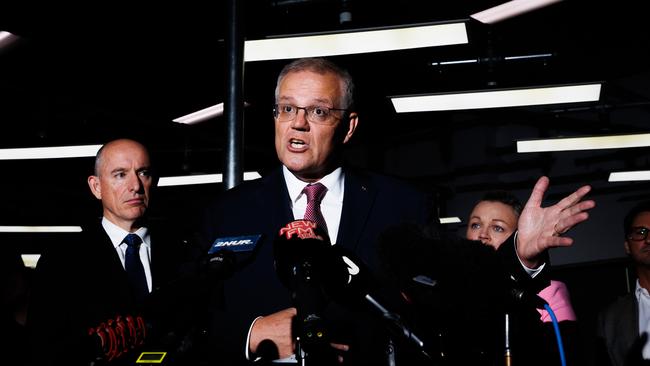
“What he said … puts a chain reaction in place, dominoes falling that lead to higher … cost of living.”
In an exclusive interview with The Australian, Mr Morrison added more fuel to the fire, saying the Labor leader was proposing something “reckless and dangerous” without any economic analysis to support it.
“Who pays for this? Wages don’t just fall from the sky. They have to be paid by businesses, and business have to make profits and they have to be in an economy that is doing well.”
What do businesses groups say about the Albanese plan?
The prospect of labour costs rising even further than they already have has sent an anxious tremor through business circles.
Australian Industry Group chief executive Innes Willox told Nine Radio wage growth over five per cent is unsustainable.
“Everyone should get a pay rise … the fact that we already have the highest minimum wage, we’re the champion of minimum wage, and unions want to put them up by another 5.5 per cent – that’s another $42 a week,” Mr Willox said.
“Of course that then flows through to every other wage negotiation that business has … not every business (can afford it). There are hundreds of thousands of small businesses and for many of them, this would be a backbreaker; it’s not sustainable for them to be asked to pay this.
“It’s just not going to work for small and medium businesses. It would be (the final nail in the coffin).
“We have to be very careful.”
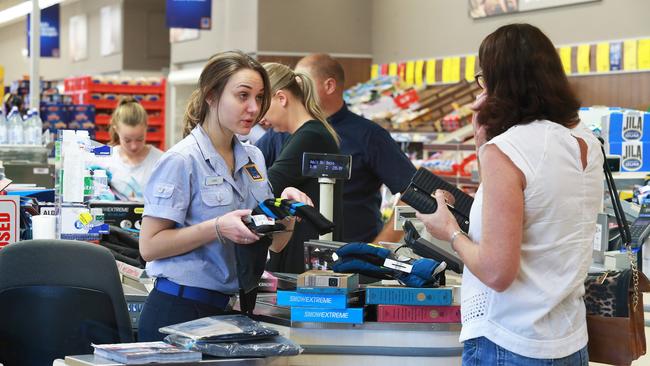
The bosses of both Woolworths and Wesfarmers say they are in support of wages rising, backing calls from the Australian Retailers Association for the minimum wage to match an underlying rate of inflation of 3.7 per cent.
Meanwhile, Council of Small Business Organisations Australia chief executive Alexi Boyd told the Financial Review a 5 per cent wage rise would “break many small businesses”.
“Of course business owners want to look after their staff … but the conditions we find ourselves in economically are very different to two to three years ago,” she told the publication.
Australian Chamber of Commerce and Industry boss Andrew McKellar also told the Fin that unaffordable wage increases will cause more harm than good for employment.
“Conditions across the economy remain disparate, with some sectors continuing to struggle and are yet to return to their pre-pandemic levels. It will take some time for many award-reliant businesses to get back on their feet,” he said.
Originally published as Wage war: What Albo’s pay plan means for you

